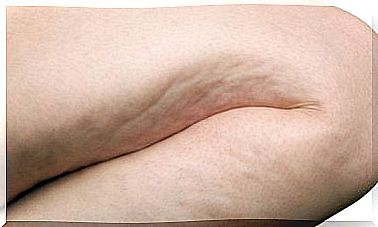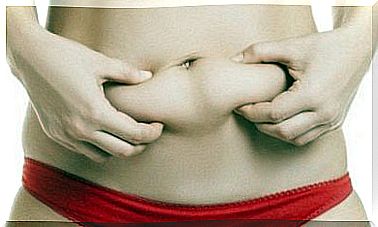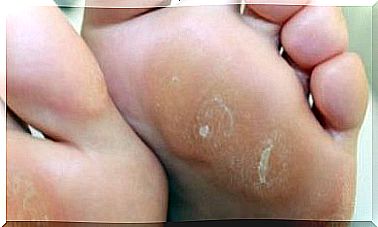What Happens When You Drink Alcohol On An Empty Stomach?

Drinking alcohol on an empty stomach is something everyone does at one time or another, whether it is after work, an evening with friends or another situation. But is it safe to do this? Are there consequences for this type of intake if you have not eaten? We tell you!
In general, consumption of alcoholic beverages is accepted in society. Nevertheless, the World Health Organization reports that every year there are 3 million deaths worldwide due to the consumption of alcoholic beverages. There is even a risk factor for more than 200 diseases.
How does the body absorb alcohol?
The process of absorbing alcohol begins with ingestion through the mouth. Since this substance has a low molecular weight, it passes easily through the cell membranes and from there into the blood vessels. Therefore, the mouth, esophagus and stomach can absorb small amounts.
When alcohol reaches the stomach, this organ absorbs 15 to 20%. Then the substance passes into the small intestine, which is where the main absorption takes place. This process then continues in the first and second parts of the intestine (duodenum and jejunum) by 80%. Finally, the last absorption takes place in the colon.

Drinking alcohol on an empty stomach: How does food help or affect absorption?
The absorption of ethanol in the duodenum and jejunum is faster than in the stomach. For this reason, the rate of gastric emptying is an important determining factor in the rate of absorption of alcohol into a person.
In this regard, science shows that the capacity to absorb this substance increases with an empty stomach and decreases when the stomach has food. This is because the contact surface slows down and gastric emptying slows down.
However, fatty foods will be the exception to this rule, as they affect the motility of the stomach differently from other nutrients. In particular, they increase movement and cause alcohol to reach the blood faster.
Fortunately, foods that contain carbohydrates and proteins cause absorption to slow down and the concentration of alcohol in the blood to drop by up to 25%.
Consequently, alcohol on an empty stomach will lead to higher plasma ethanol concentrations and increased toxic effects.
Alcohol content and absorption in the body
On the other hand , absorption increases when the beverage in question has an alcohol content of 20% to 35%, as these do not produce strong muscle movements compared to drinks with an alcohol content above this value.
Similarly, the absorption of ethanol also increases if a person swallows a large amount at the same time, but not if they swallow several times in small amounts.
General effects of alcohol on the body
Like everything we ingest, the liver is the organ responsible for the metabolism of ethanol, as it converts this substance into acetaldehyde and then acetic acid. The body also excretes the remaining 5 to 10% of urine, sweat and respiration.
However, while ethanol is still present in the blood, it affects the nervous system. This is why we experience classic symptoms as follows:
- The feeling of being uninhibited
- Unclear speech
- Loss of coordination
It is important to note that high doses of alcohol can cause alcohol poisoning, which includes other symptoms such as the following:
- Nausea, swelling and vomiting
- Confusion
- Hypothermia (low body temperature)
- Sudden loss of coordination
- Slow or abnormal breathing
- Difficulty speaking
- Loss of consciousness
- Fainting
Alcohol in women
It is also important to note that women have a lower body mass than men. They also have a higher percentage of fat and lower expression of the enzyme “acetaldehyde dehydrogenase” (responsible for the formation of acetic acid) in the gastric mucosa.
For these three reasons , women tend to get more intoxicated than men when they drink the same amount of alcohol.
Alcohol in pregnant women
When pregnant women ingest ethanol, it passes through the placenta from the mother’s blood to the fetus. Thus, babies are exposed to the same levels of alcohol in the blood as their mothers, which can lead to various serious complications.
Prevention and recommendations
When it comes to health, it is best to avoid alcohol consumption. But if you drink, especially on an empty stomach, it is worth considering the following:
- Choose a drink with a low alcohol content.
- Drink water or other non-alcoholic liquids, between sips of your drink with ethanol.
- Try to drink slowly over a long period of time, instead of large volumes in a short time.
- Eat a meal an hour before drinking alcohol.

How can I feel better after drinking alcohol on an empty stomach?
Drinking on an empty stomach increases the risk of the famous side effect known as a “hangover”. This usually happens the day after after drinking a lot of alcohol or drinking something with a significant alcohol content.
Symptoms may include the following:
- Dizziness
- Excessive thirst
- Reduced ability to concentrate or think clearly
- Headache
- Changes in mood
- Nausea and vomiting
- Sensitivity to light and sound
- Abdominal pain
Although these problems can be solved on their own, you can consider the following tips to reduce them:
- Drink water, broth or fruit juice throughout the day
- Sov
- Eat easily digestible foods, such as toast, biscuits and jelly, among others
- Take painkillers, such as ibuprofen, to relieve headaches
It is never good to drink alcohol on an empty stomach
Alcohol is a substance that is in itself harmful to health, since excessive consumption is associated with the development of diseases.
When consumed on an empty stomach, it can have a greater impact on the body due to its rapid absorption. Since ethanol reaches the bloodstream earlier, it causes its classic effects and greater risk of poisoning.
To prevent this from happening, it is recommended to eat some food before drinking this type of drink. At the same time, it is ideal to drink plenty of water and avoid excessive intake. The best way to ensure that it does not affect your health is to avoid it altogether.









